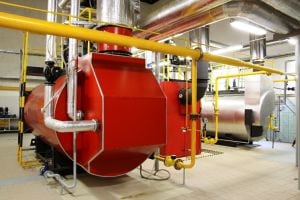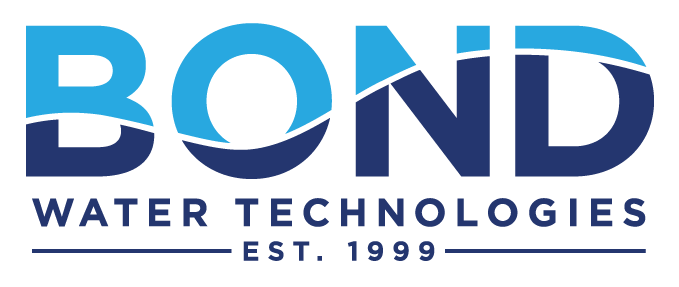If you own or you are considering installing an aluminum boiler
here is some information you need to know.
Authored by Matt Mallon – Bond Water Technologies
Have questions about aluminum boilers and water treatment programs? CLICK HERE or on the green button below or Call John Dunford 301-721-2663 (301-721-BOND) or email Info@bondwater.com
Boilers manufactured with aluminum heat transfer components are increasingly used for new construction and retrofit applications. They offer energy efficiency advantages, and are likely less expensive to manufacture than  steel boilers.
steel boilers.
As water chemistry is often a lesser, or even neglected consideration in design and construction specifications, it is crucial to understand that these new pieces of equipment are extremely sensitive to the high pH values used in traditional closed loop treatments. Typical closed loop treatments inhibit corrosion using pH buffering, and it is not uncommon to operate at values of 9 or even 10. Aluminum starts to degrade rapidly at pH values above 8.5. In addition to Ph adjustment there are specific corrosion inhibitors required for protection of aluminum metals.
If you are involved in selecting or installing boilers, it is imperative that you alert your water treatment provider that this type of boiler has been selected. Some manufacturers have learned through painful experience, and have started placing large warning notices on the boiler exteriors.
Aluminum Boilers and Water Treatment Programs
When these units are installed, it is critical that the chemistry be understood, and the proper agents both for initial cleaning, and corrosion inhibition be adjusted, to accommodate the lower pH tolerances. This may involve draining the entire loop prior to testing the new boiler.
In the case of a large closed heating loop, such as a campus, or garden style apartments, the addition of a secondary heat exchanger may be warranted so that the larger loop can be protected with traditional high pH inhibitors which are widely considered more effective.
Bond has specially formulated cleaning agents, and corrosion inhibitors designed specifically for these pH sensitive boilers. Contact us to learn more about protecting yourself from premature boiler failure brought on from incorrect treatment.
